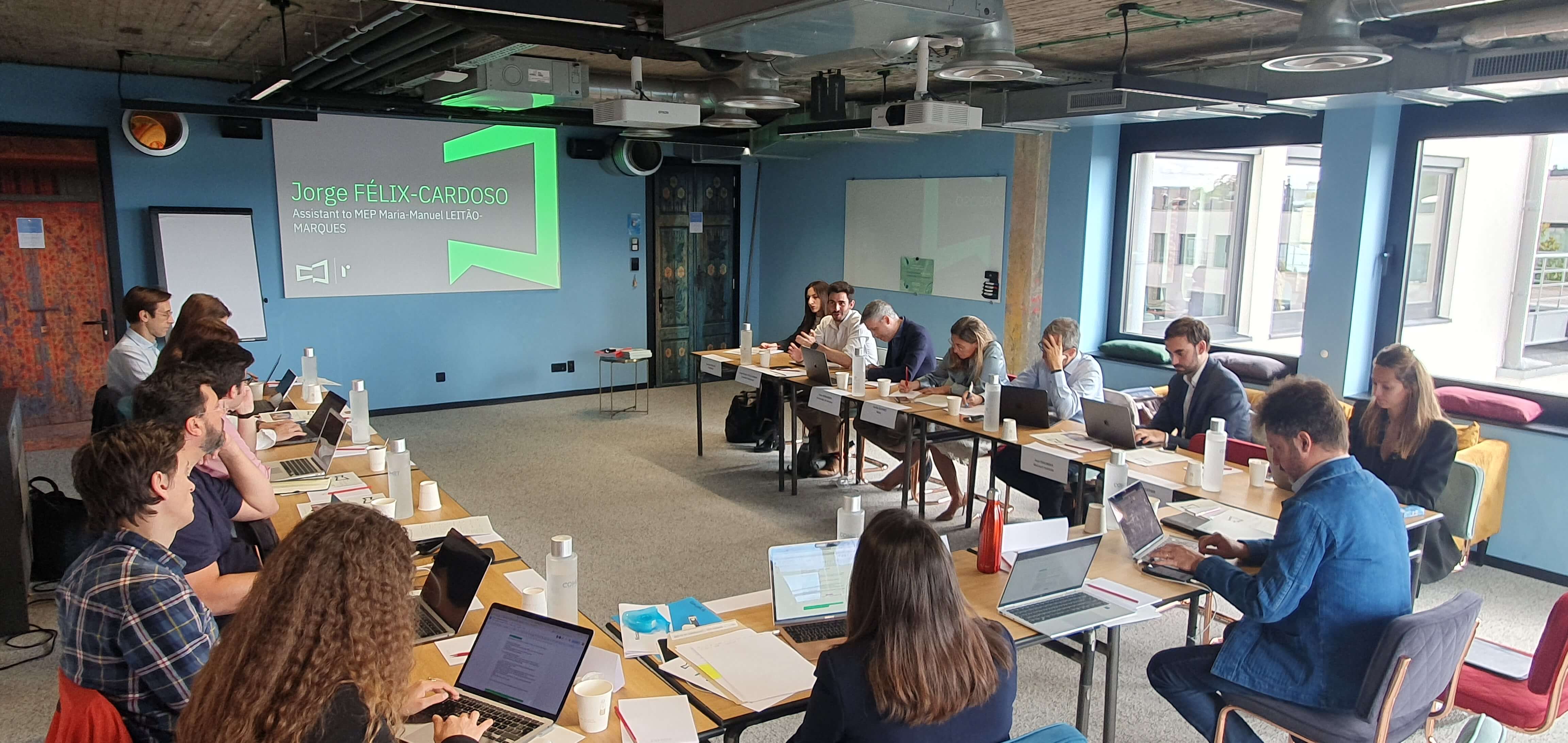Legal inconsistencies
Over the past twenty-five years, numerous legislative initiatives have been launched at European level to regulate digital uses. Various regulatory layers have been implemented, mainly on a sectoral basis: competition law, privacy protection, consumer law, copyright, e-commerce legislation, audiovisual media legislation, legislation on technical intermediaries, and so on (see "A Metaverse-proof legal framework”). However, the laws adopted more recently establish rules that are horizontal rather than sectoral (for example, the GDPR, the Data Governance Act and the Data Act), which sometimes contradict each other, or are at least not clearly articulated.

This legal incoherence, and the lack of prioritisation between the various existing rules, has led to a certain inefficiency in the legal framework applicable to the Metaverse.
A framework that’s hard to apply
In terms of regulation, a second notable development has been added to the horizontality of recent legislation: the appearance of the terms "by design", "by default" and "risk-based". Implementing privacy by design, or carrying out risk-based impact assessments, requires considerable financial and human resources. On this point, the many legal experts that took part in the Metaverse Dialogues are unanimous: very small businesses (VSEs) and small or medium-sized enterprises (SMEs), which nevertheless make up the vast majority of European economic players, are not in a position to comply with texts like the GDPR. Only the largest companies can, and with considerable difficulty. Adopting a risk-based regulation (like the AI Act) therefore means accepting that only the largest players will be able to comply; which is a certain vision of legal efficiency.

As one participant at the third day of the Metaverse Dialogues, pointed out, "a specific product may be subject to around 250 infringements in Europe, depending on the number of regulators dealing with the same issue in each country, until European proceedings are brought before the Court of Justice of the European Union (CJEU) and a solution eventually found. No company
can survive this situation. No one, in terms of efficiency, will make the effort to comply with the rules of the Polish market, then the French market, then the Spanish market, and so on. Not even the big players. But what's very positive is that the problem is visible, so we can target it."
In order to promote the applicability of laws and innovation, is it therefore better to provide different rules depending on the size of the business players? This is precisely the logic behind the DSA, which imposes special obligations on very large online platforms, and the DMA, which does the same for "gatekeepers". Time will tell whether this approach proves more effective.

From an enforceability point of view, another central issue, briefly mentioned in relation to intellectual property, is the incompatibility of traditional legal systems for dealing with litigations that may emerge on the internet, and therefore in metaverses. Billions of messages, photos, and videos are posted every day on social media platforms. For efficiency reasons, and in particular because of the need to act quickly, it is not feasible to have a judge on hand to deal with every case, every instance of cyber-bullying, every dissemination of illegal content online. In order to overcome this difficulty, online platforms have gradually been entrusted by governments and legislators with the responsibility of deciding on such matters, a task previously assigned to judges. For several years now, we have been witnessing the privatisation of justice: it is the moderation teams (and the artificial intelligence algorithms that assist them) that are in charge of deciding what is legal or illegal, harmful or not, on their platforms. As justice is one of the regalian functions of the State (along with currency, defence, and police powers), this shift is questionable.
Furthermore, the practical implementation of the major principles put forward in the various legislative initiatives of recent years seems to be problematic.
The promulgation of consensual legal texts cannot do without their applicability and enforcement. Thus, the priority for legislators and the next European Commission should be legal consistency and applicability. In this respect, the possible emergence of the Metaverse would be a perfect laboratory.







